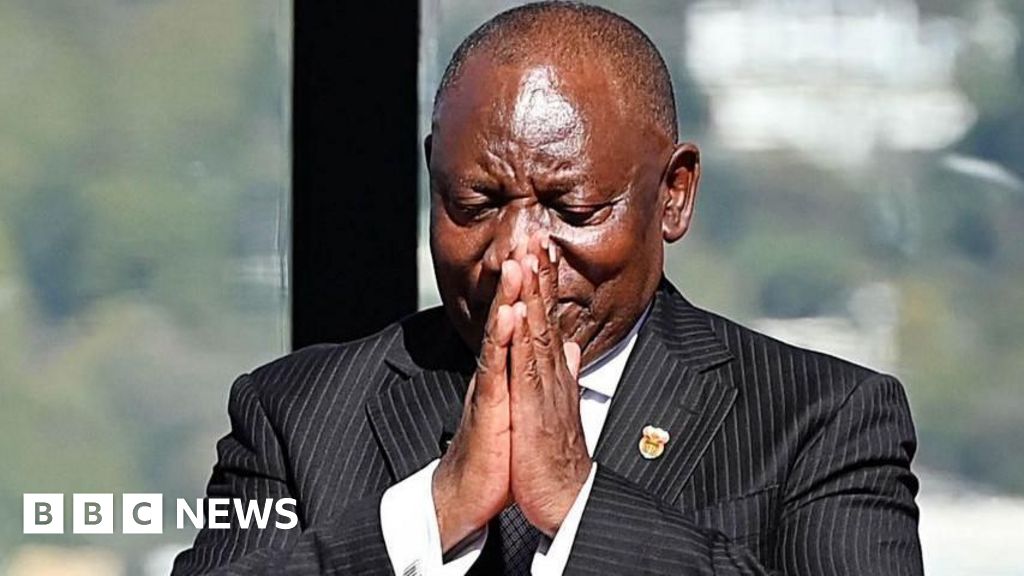The shrinking of ANC support in the elections reflected public frustration over its poor record on delivering basic services and tackling unemployment, poverty and corruption.
The ANC led by Nelson Mandela came to power in 1994, ending decades of white-minority rule in South Africa.
Some of its activists have criticised it for sharing power with the DA, which some see as representing white interests.
The coalition government was welcomed by the business community who said it would ensure economic stability, in contrast to a potential deal with two radical parties which have split off from the ANC.
In the new cabinet, the ANC will keep key ministries such as defence, finance, and also foreign affairs – where it has been vocal in its support of the Palestinians and intensely critical of Israeli actions in Gaza. Outgoing Foreign Minister Naledi Pandor has been replaced by Ronald Lamola, who was previously justice minister.
The DA’s portfolios include home affairs – which controls immigration, as well as public works – which has been at the centre of a series of corruption scandals. The party also takes over basic education, but not higher education. Party leader John Steenhuisen will lead the ministry of agriculture – a sector dominated by white farmers and corporations.
In a televised speech on Sunday, Mr Ramaphosa said: “The incoming government will prioritise rapid, inclusive and sustainable economic growth and creation of a more just society.”
The ANC welcomed the move as “an important step forward, and a testament to the resilience of our democracy”.
DA leader Mr Steenhuisen told the nation his party “drove a hard bargain” during what he called “robust negotiations” to make sure the DA got portfolios of “real substance”.
“Good governance, zero tolerance for corruption and pragmatic policy-making,” have all been promised by the head of the DA, who said his party was now “proud to rise to the challenge and take our place, for the first time, at the seat of national government”.
Despite a coalition cabinet deal, stark political disagreements remain between the ANC and the DA.
Perhaps the biggest and most contentious issues are DA opposition to the ANC’s national healthcare policy and to its black economic empowerment programme.
Crucially the ANC retains control of those government ministries – mines, trade and land reform – which are key to its policies on black economic empowerment.
In May’s elections the ANC got 40% of the vote, while the DA secured 22%.
This article was originally published by a www.bbc.com . Read the Original article here. .


